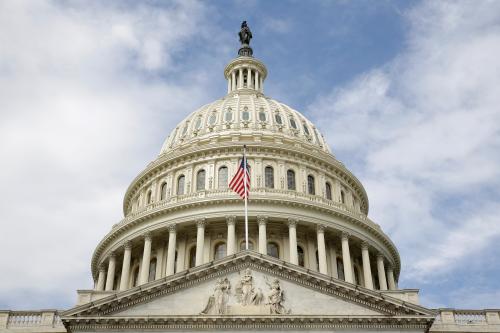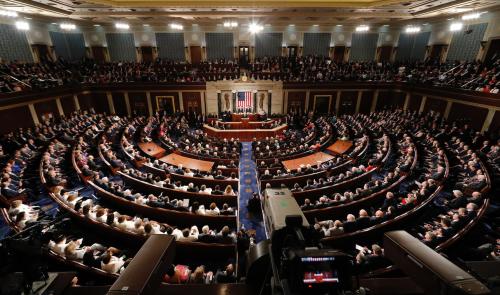On June 17, 2021, Molly Reynolds, senior fellow in Governance Studies at The Brookings Institution, testified before the Select Committee on the Modernization of Congress during a hearing entitled, “Building a More Civil and Collaborative Culture in Congress.” In her testimony, Reynolds discussed trends in American politics, polarization, and recommendations to encourage a collaborative culture in Congress.
Chair Kilmer, Vice Chair Timmons, members of the committee, and staff: my name is Molly Reynolds and I am a Senior Fellow in the Governance Studies Program at the Brookings Institution. I appreciate the opportunity to testify today on how Congress might improve its culture and, more generally, the chance to contribute to the vital work of this Committee.
I have spent my entire professional career as a student of the United States Congress, and believe deeply in its role as a vigorous, co-equal branch of government that can serve the public good. My thoughts today draw on my own research and that of other political scientists, both those who focus on the Congress and those whose work on the broader American political system helps understand the incentives members of Congress face as you carry out your responsibilities.
I will begin with a word of caution: as you consider approaches to building a more civil and collaborative culture in Congress, you should avoid assuming that there is a “golden era” in which Congress “worked” and whose practices you should strive to emulate. That is not to say that there are not ways to improve Congress’s culture; there are. But they do not involve getting in a time machine and returning to decades past. This was true before the insurrection at the U.S. Capitol on January 6, but that horrific episode emphasizes the degree to which simply winding back the clock is not an option.
Continue reading the full testimony here.
Watch the video of Reynolds’s testimony (starting around the 15:37 mark) and the rest of the hearing below.
The Brookings Institution is committed to quality, independence, and impact.
We are supported by a diverse array of funders. In line with our values and policies, each Brookings publication represents the sole views of its author(s).






Commentary
TestimonyFostering civility and collaboration in Congress
Molly Reynolds's statement to the Select Committee on the Modernization of Congress
June 17, 2021